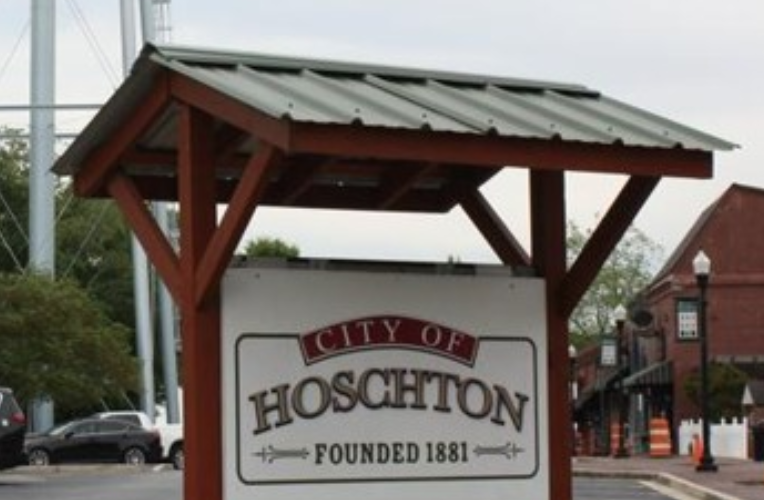the quote on the right isn’t even the mayor who is in hot water! https://t.co/prqkj8GgsK pic.twitter.com/eTvJTtGjWQ
— Sopan Deb (@SopanDeb) May 6, 2019
In today’s entry under the heading of “There’s (Almost) Always a Religion Angle,” let’s turn to the lead story on the Atlanta Journal-Constitution home page.
It’s an investigative piece on a small-town Georgia mayor under fire for allegedly withholding a candidate from consideration for city administrator because he was black.
In the story from Hoschton, a 90 percent white community 50 miles northeast of Atlanta, the Journal-Constitution reports:
According to documents obtained by The Atlanta Journal-Constitution and interviews with city officials, Mayor Theresa Kenerly told a member of the City Council she pulled the resume of Keith Henry from a packet of four finalists “because he is black, and the city isn’t ready for this.”
The AJC’s investigation into the controversy revealed not only a deeply flawed hiring process, but also hard racial attitudes inside Hoschton’s government. All of this occurs as the city of fewer than 2,000 people just outside Gwinnett County is poised for dramatic growth with the construction of thousands of new homes.
So what’s the religion angle?
Interestingly enough, it relates not to the mayor but to a councilman named Jim Cleveland. Cleveland is quoted in the story as defending Kenerly, while confirming many aspects of the story.
Here’s part of what Cleveland said:
Councilman Cleveland said he did not think Kenerly was necessarily wrong.
“I understood where she was coming from,” he said. “I understand Theresa saying that, simply because we’re not Atlanta. Things are different here than they are 50 miles down the road.”
And here’s where Christianity — Cleveland’s brand of it, anyway — enters the picture:
While Cleveland said it was not an issue in his decision on whom to hire, he did share his beliefs about race.
“I’m a Christian and my Christian beliefs are you don’t do interracial marriage. That’s the way I was brought up and that’s the way I believe,” he said. “I have black friends, I hired black people. But when it comes to all this stuff you see on TV, when you see blacks and whites together, it makes my blood boil because that’s just not the way a Christian is supposed to live.”
Um, OK.
Give credit to the Journal-Constitution for quoting Cleveland in his own words. His perspective, jarring as it will be for most readers, is important to the story. But since religion has been introduced to the report, shouldn’t it be expounded upon?
Can anybody think of an obvious follow-up question?
Daniel Silliman, a U.S. historian who writes about religion and American culture, has one:
Curious what church this Georgia city councilman goes to https://t.co/1fMXDJkQPz pic.twitter.com/49HyJXCl29
— Daniel Silliman (@danielsilliman) May 6, 2019
Yes, at this point, it would be nice to know if Cleveland has a specific denominational affiliation and house of worship — and if folks where he worships, assuming he worships somewhere, share his beliefs on interracial marriage and seeing “blacks and whites together” on TV.
It also would be interesting to know more about the religious makeup of this small town. What are the largest churches? How do pastors and church leaders respond not only to the mayor’s action but also to Cleveland’s statement?
On the surface, the AJC piece is a report on small-town politics and attitudes in the South.
But it doesn’t seem like much of a stretch — or a stretch at all — to suggest that religion is a key aspect of the story that needs to be explored, too.










